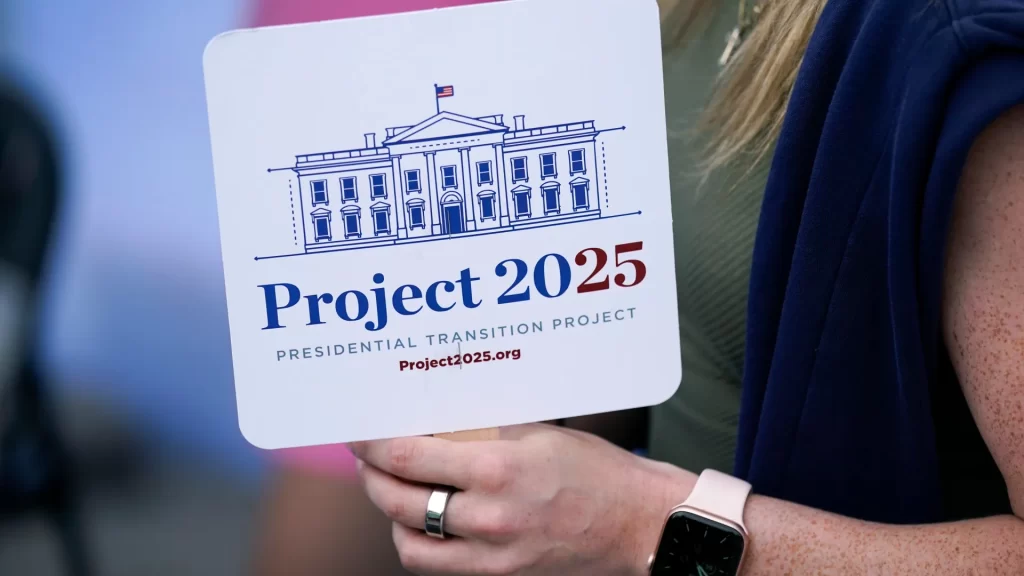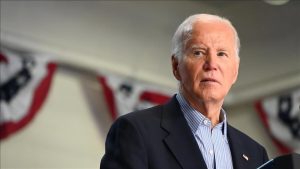Unveiling Project 2025: Conservative Plans to Transform American Governance

As the political landscape in the United States continues to evolve, the Republican Party is gearing up for a significant transformation with their ambitious Project 2025 plans. This initiative, often referred to as “The 2025 Project,” aims to reshape American governance, ushering in a new era of conservative principles and policies. With roots deeply embedded in the ideals of the American Revolution, Project 2025 seeks to restore what its proponents view as foundational American values. But what will Project 2025 do to achieve these goals? This article delves into the key aspects of the 2025 Republican plan, exploring its objectives, strategies, and potential impact on the nation’s future.
The Genesis of Project 2025
The origin of Project 2025 comes from a deep-seated belief among conservatives that the US government had left the ideals that formed it in its initial years. While on the surface the project responds to the political dynamics of the post-9/11 period, the broader aim of Project 2025 is to transform the way the nation is governed to fit more closely with the ideals of the American Revolution. Project 2025 activists envisage an across-the-board overhaul of government policy to underscore conservative values. The 2025 Republican Plan received its most influential support from a number of conservative think tanks and organisations such as the New America Foundation that are central to the ideological formation and the strategy for its implementation. These institutions emerged as integral elements in an emerging ‘new politics’ of the US in the post-9/11 age.
At the core of Project 2025 is the coordination of conservative leaders, policymakers and conservative companies to all take a shared approach to the future of the nation. The framework for the project itself was crafted through research and consultation, leveraging historical insights to help design off ramps and on ramps for contemporary analyses, and taking that into consideration when creating a playbook for governance reform. This indicates the seriousness and coordinated effort that its proponents have taken in attempting to transform American governance. Ruminations on ‘is Project 2025 real’ in political circles are accurate. The framework is real, and ideas for its implementation are outlined through a set of goals and actionable steps.
Core Objectives of Project 2025
The central purpose of Project 2025 is to return to what its supporters see as the core principles of the American Revolution (a redefinition of that revolution is now central to the conservatism articulated in Project 2025) by repudiating what are seen as excessive federal powers and encouraging more decentralisation of governance back to state governments free of federal intrusion. This also means reducing the levels of what conservatives see as excessive federal red tape, creating a government that is more efficient as well as more morally responsive to the ideals of conservatism.
A second major objective is to alter the judicial system to adhere more strictly to constitutional originalism – that is, judges would interpret the Constitution based on its original meaning, rather than through the lens of contemporary social change. Education reform is another central goal, including school choice, parental rights, and transparency in what students are taught. The project’s website also includes the objective of ‘robust national defence’, as well as vigorous ‘immigration policies to safeguard American sovereignty and security’. Through these core objectives, Project 2025 seeks to facilitate a government that fundamentally pays respect to the founders’ conceptions of individual liberties while also maintaining the structural integrity of the system itself.
Strategic Implementation Plans
Strategically, while all of Project 2025’s goals are slated for simultaneous action, legislatively, the plan envisions a phased approach, starting at the federal level. The first phase involves drafting and introducing legislation that will eliminate federal rules and regulations, and devolve more authority to the states. Moreover, the plan calls for extensive official and unofficial lobbying of interest groups, legislators, and the general public. Eventually, once a broad coalition of conservative legislators, interest groups and ordinary citizens has been established, the plan asserts that the project’s legislative goals will have a better chance of gaining traction in Congress. Those goals are supported by broad-based and robust education and outreach efforts that inform the public about the benefits of the changes and their underlying necessity.
Alongside these legislative changes, Project 2025 highlights executives as a key front on which to enact and advance the project’s priorities. Project 2025 notes that the project could not be accomplished legislatively alone – keeping the project’s conservative leadership in positions of management or appointment (eg: the fata morgana of having a Federalist Society-inspired Supreme Court and similar executive branch leadership) throughout the course of the project’s implementation would be an essential part of its success. Project 2025 correctly identifies other tools besides legislation available to ensure that the project is realised across all branches of government, including executive orders and judicial appointments that align with a commitment to constitutional originalism.
Impact on Economic Policies
Economic policy has formed the basis of Project 2025, with free-market principles and a shrinking role of government in the economy central to the plan. It calls for tax cuts to lower rates for individuals and businesses, and to revive dynamism and boost competition, while the overall goal is deregulation to reduce the administrative burden on business and spur growth that would make the US more competitive again. These economic plans are intended to demonstrate to voters that the Republicans believe in the power of the free market to create wealth and improve people’s lives.
It will also focus on fiscal responsibility. Project 2025 will work to make the federal government leaner and wiser, taking action to reduce government spending and the national debt. These endeavours will begin with a research-oriented review of all federal programmes to find and eliminate wasteful spending. Entitlement reform is another key component in ensuring the sustainability of social security and healthcare systems without compromising the programs that every American deserves. Preserving our economy and ensuring economic progress for generations to come will require fiscal discipline.
Social and Cultural Reforms
Social and cultural reforms are a focal point of Project 2025. Education policy in particular would target parental rights, or what its blueprint characterises as ‘mothers’ rights’. This includes proposals for school choice that would open avenues for parents to ensure that their children receive the best public or private education, as well as efforts toward curriculum transparency that enable parental control of what and how students are taught. For example, Project 2025 would ‘create learning standards that parents support’ so that schools aren’t able to implement curricula beloved by teacher’s unions that subvert the values and beliefs of their students. To ensure that students remain true patriots, Project 2025 also recommends renewed commitments to ‘American history and civics education’.
The second emphasis is on social reforms that protect religious freedoms and traditional family values. Project 2025 states that: It ought to be the task of each American generation to safeguard individual liberties and traditional values that serve as the moral and ethical foundation for the US. This requires us to ensure that freedom of religion is respected for all individuals and organisations in the civic domain. In particular, we should safeguard the freedom of religion for our churches and synagogues, mosques and temples, to operate in accordance with the dictates of their faith and conscience. Furthermore, we must protect our citizens from governmental compulsion to act contrary to their convictions.It further states that: Cambridge Polity Press, 2017View this table:View tableIt’s hardly surprising that a theocracy, which openly advocates separating political power from administrative power ‘because a theocracy is much more easily governed’, should see religious freedom as a social issue. Project 2025 continues: Family capitalism embodies the essential goodness, justice and equity of free-market capitalism, ultimately benefiting ‘the greatest number of people, putting the interests of the community above self‑interest’. View this table:View table Thus, the social and cultural reforms are progressive: they reinforce the moral and ethical foundations of a nation that respects individual liberties and maintains traditional forms of society.
Political and Electoral Reforms
With an eye towards political and electoral reforms, another part of Project 2025 calls for measures to assure that every vote counts fairly in American electoral contests. The party has singled out efforts to safeguard the election process with voter ID laws, to update voter rolls, and increase cybersecurity to reduce the risk of fraud or interference. It is imperative to restore the US electoral system to one that truly honours one person, one vote, and where, as Trump stated on the campaign trail in 2016, ‘every legal vote’ counts. Along the same vein, the Republican project seeks greater transparency in campaign finance and the curbing of special interests.
The second critical dimension of political reform for Project 2025 consists of institutional changes, such as enforcing term limits for members of Congress, and reforming redistricting rules to drive out gerrymandering altogether. The rationale for these reforms is to break up the club of career politicians that has monopolised the legislative arena for years, and to allow more fresh faces and governance ideas to enter government.
Conclusion
Project 2025 represents a bold vision for the future of American governance, deeply rooted in conservative principles and the ideals of the American Revolution. By addressing key areas such as legislative, economic, social, and political reforms, the 2025 Republican plan aims to create a government that is more efficient, responsive, and aligned with the values of its citizens. As discussions about “is Project 2025 real” continue, it is clear that the initiative is a concrete and actionable plan poised to significantly impact the nation’s trajectory. The collaboration of conservative leaders, policymakers, and organizations like the New America Foundation underscores the seriousness and commitment behind this transformative project. As the nation looks ahead to 2025, the potential for a new era of American governance rooted in conservative ideals is both intriguing and significant.






